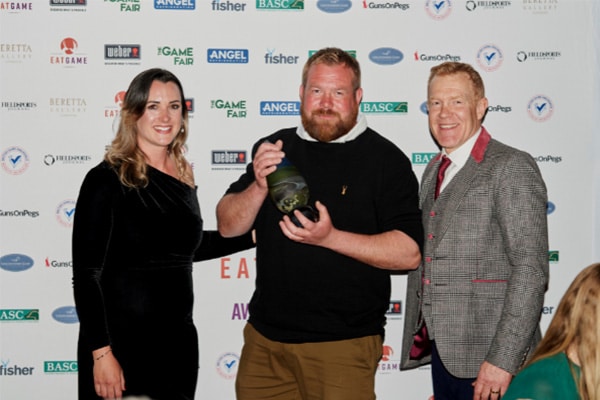
Eat Game Award winners crowned
The winners of this year’s Eat Game Awards were named at a glittering ceremony in London this evening.
Get information on the legal shooting season for mammals and birds in the UK.
Apply for funding for your project or make a donation today
Comprehensive information and advice from our specialist firearms team.
Everything you need to know about shotgun, rifle and airgun ammunition.
Find our up-to-date information, advice and links to government resources.
Everything you need to know on firearms law and licensing.
All the latest news and advice on general licences and how they affect you.
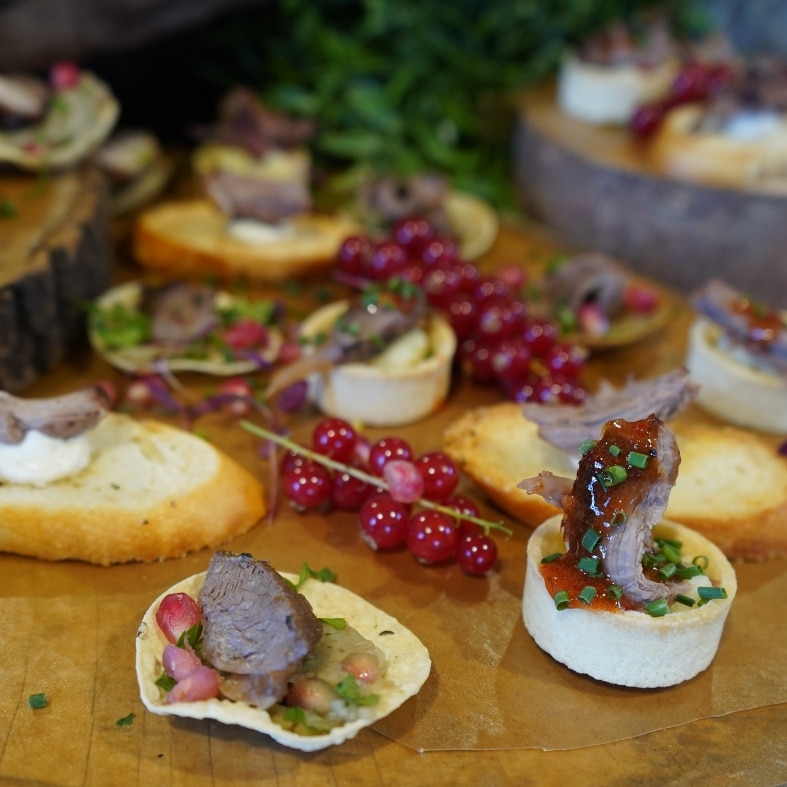

Based in Taunton, Queen’s College sits within BASC’s South West region. Since the project’s inception, the school’s decision to introduce game meat to pupils has been going from strength-to-strength.
After Joe Mann, named ‘Best Teacher in England’ by the British Nutrition Foundation in 2020, joined the Queen’s College as their head of food and nutrition, healthy and sustainable food became one of the top priorities, and with it, the school’s attention focused on introducing game meat to pupils.
BASC members Simon and Celine Peniston-Bird have been directly involved in helping the school source game to fulfil the project. Both Simon and Celine have a long association with BASC and when they moved to the area and their son joined Queen’s College as a student, they became aware of the school’s drive to introduce game meat to pupils.
The project offered a huge potential for promoting game meat to a wider audience. “After our son joined Queen’s, we realised that the cooking department was an amazing asset, not only to the school but also to the future of the field sports community,” Celine said. “They have a passion for local and sustainable produce, and to see the exceptional ingredients that the children can cook spurred us on to offer some of our own game for their use.”
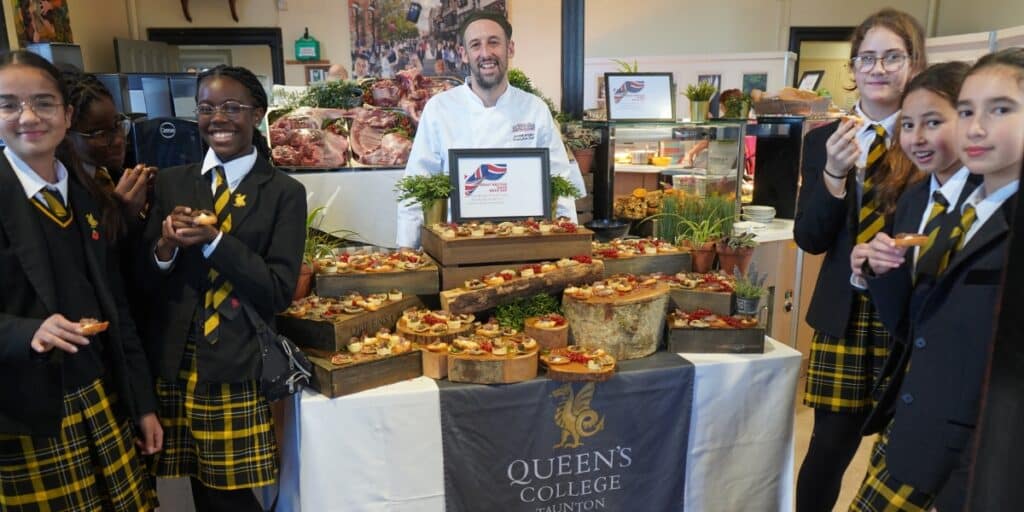
The syndicate shoot that Simon runs is only half an hour away from the school, which makes supplying fresh wild game easy. “This season we have managed to avoid using a game dealer altogether, and our birds have all been taken by the Guns, beaters, pickers-up, the local community and cooked on-site for shoot days.
“To be able to offer game birds to the school, knowing they would be put to good use teaching the children about local and sustainable food, was something we were passionate to pursue,” said Simon.
It began by introducing game into the curriculum at GCSE level, where pupils need to demonstrate high-level meat preparation skills, learn how animals are reared, and about the contribution of seasonal, local foods within traditional cuisines.
The college now teaches how to prepare game meat supplied by local shoots. It also educates them on the provenance of game, from rearing through to cooking. Ultimately, the school wants the children to taste and become familiar with game so that they take away a positive message about it.
William Sitwell, friend of Queen’s College, BBC MasterChef judge, restaurant critic, and author, said: “Cooking with and eating game isn’t just a sensible, sustainable, and natural way of life, it’s a delicious, exciting approach to food, with endless and wonderful possibilities. I wish more of us could understand and share this great source of nutrition and pleasure.”
The students learn about game’s importance as part of a healthy diet, a healthy countryside, and, ultimately, for a healthy planet – thanks to its low carbon footprint. Queen’s College is proud that, in a world where people know so little about where their food comes from, their students can make the connection between game and the benefits that it brings to local economies and the wider countryside conservation.
“Game provides a fantastic opportunity to really educate our pupils about the significant nutritional benefits of wild meat, its provenance and sustainability,” said Joe Mann. “It is an astonishingly versatile, healthy ingredient and I am so glad that we have been able to take a whole-school approach to championing game.”
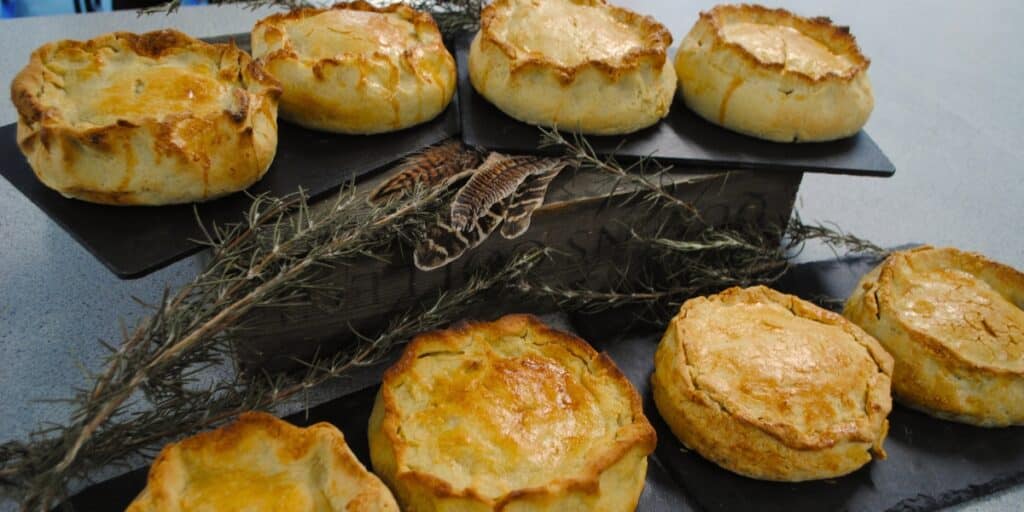
Since the project began, Queen’s College has also celebrated Great British Game Week annually. The range of game available to pupils expanded to include duck, partridge and venison, and students make a huge variety of dishes in class.
What’s more, the school also decided to go a step further and extend education beyond the classroom. The same game the pupils are used to handling and cooking in class is now served in the dining hall for everyone to taste.
Serving pupils game crostini, spiced game poppadoms and game tartlets at lunch has enabled the school to extend game education from eight-year-olds up to 18-year-olds. The executive chef of the Queen’s College caterers, Jordan Bradley, said that he welcomed the chance to “serve game dishes that will really showcase the wonderful depth of flavour that game has to offer in the dining hall.”
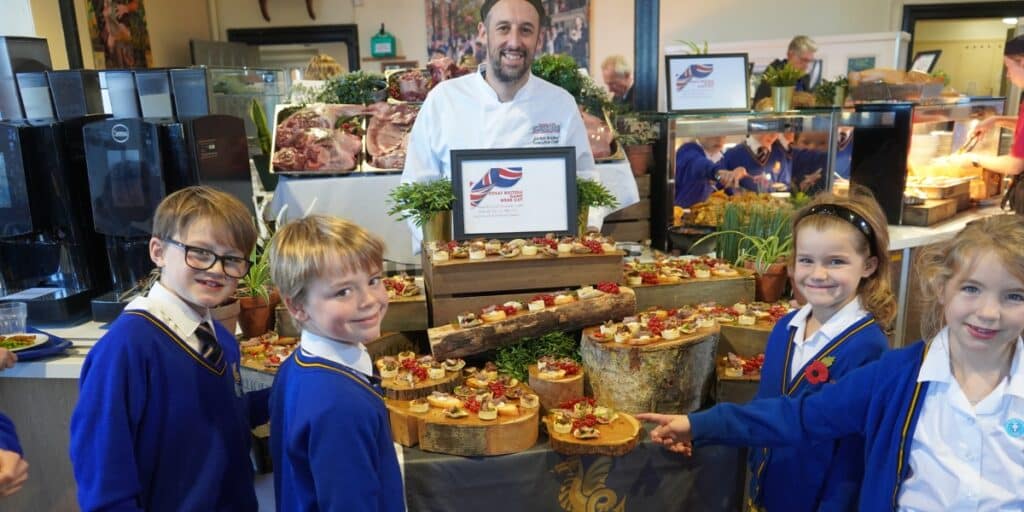
As for the future, Queen’s College is going to offer game meat to parents who have been inspired to eat more of it, and those who want to try it for the first time following the positive experiences of their children.
In addition, the school welcomes game butchery demonstrations and talks on conservation work associated with shooting.
Introducing game meat to pupils has been a challenging, but also hugely rewarding process for the school and everyone else who’s supported their journey. We hope this important work will carry on for many years to come and will offer children a real insight into the countryside and the wild produce available to them.


The winners of this year’s Eat Game Awards were named at a glittering ceremony in London this evening.
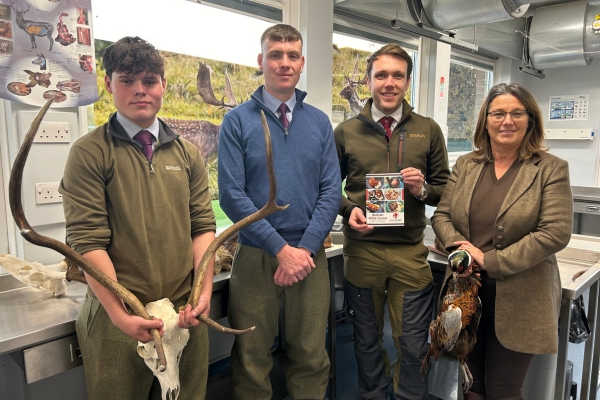
BASC Scotland director Peter Clark recently joined Tayside and Grampian Moorland Group coordinator Deirdre Falconer to showcase game to local school pupils.
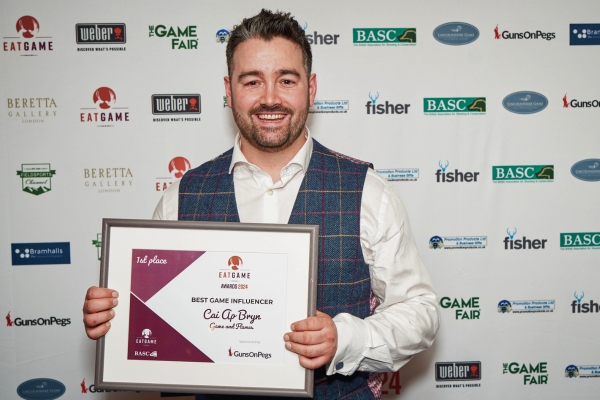
Nominations are open for the 2025 Eat Game Awards, and we want to hear from you to reward the success, innovation, and passion of game meat heroes.
Sign up to our weekly newsletter and get all the latest updates straight to your inbox.
© 2025 British Association for Shooting and Conservation. Registered Office: Marford Mill, Rossett, Wrexham, LL12 0HL – Registered Society No: 28488R. BASC is a trading name of the British Association for Shooting and Conservation Limited which is authorised and regulated by the Financial Conduct Authority (FCA) under firm reference number 311937.
BASC Direct Ltd is an Introducer Appointed Representative of Agria Pet Insurance Ltd who administer the insurance and is authorised and regulated by the Financial Conduct Authority, Financial Services Register Number 496160. Agria Pet Insurance is registered and incorporated in England and Wales with registered number 04258783. Registered office: First Floor, Blue Leanie, Walton Street, Aylesbury, Buckinghamshire, HP21 7QW. Agria insurance policies are underwritten by Agria Försäkring.
If you have any questions or complaints about your BASC membership insurance cover, please email us. More information about resolving complaints can be found on the FCA website or on the EU ODR platform.